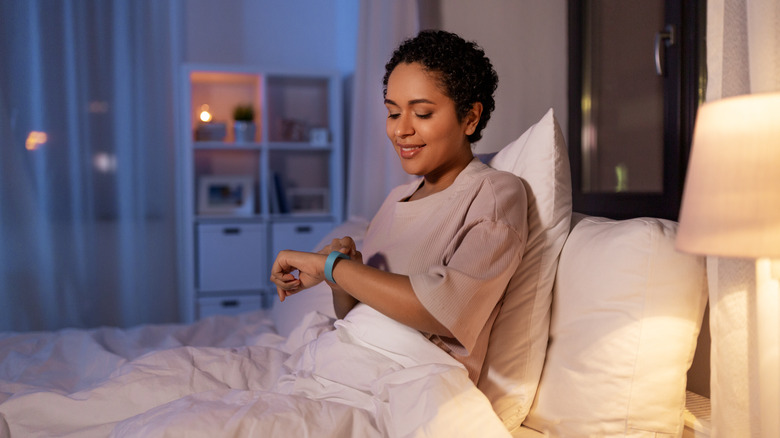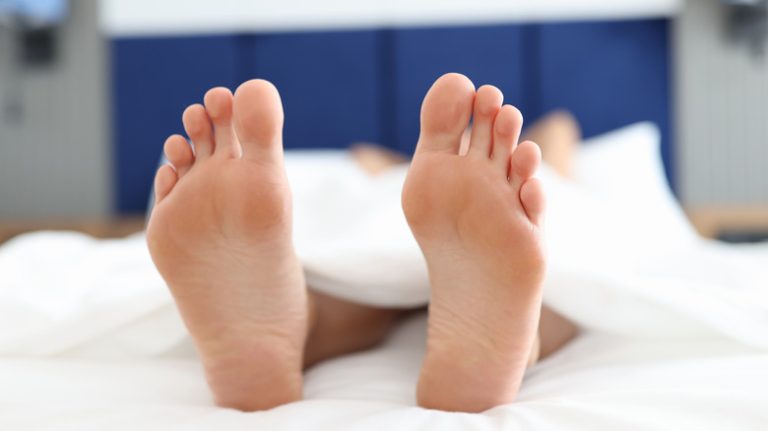The older we get, the more elusive sleep can feel. Between busy work schedules, children waking at all hours, and unwelcome insomnia, sleep can be hard to come by in adulthood. In fact, a study published in Scientific Reports explored the age we get the least amount of sleep, finding that sleep duration begins to decline as we become adults. However, it also found that sleep tends to eventually return.
The National Sleep Foundation recommends that adults get seven to nine hours of sleep per night (via National Library of Medicine). If you don’t get this much, you may be more at risk for health complications. If you sleep less than seven hours per night, you may have a greater risk of certain health problems, “including weight gain, having a body mass index of 30 or higher, diabetes, high blood pressure, heart disease, stroke, and depression,” according to the Mayo Clinic.
There are also other factors to consider when evaluating sleep. Sleep quality is just as important as quantity, as you don’t get the same rest when your sleep is ruined or interrupted. Our relationship to sleep may evolve over our lifetime, and it turns out, there’s a common age where we tend to get the least amount of rest.
How sleep changes across the lifespan

The study tracked the sleep of 11,279 people aged 6 and older for seven consecutive days. Participants wore accelerometers, or devices that track movement, on their non-dominant wrists. Researchers found that sleep duration starts to decrease around age 10, reaching its low point around age 40. However, sleep time started to increase again around age 50.
The study also noted the difference between sleep duration and sleep efficiency, which is how much time is spent sleeping as compared to how much time you have dedicated to sleep. While Americans around age 40 got the least amount of sleep, their sleep efficiency stabilized around this time and continued to be stable until about age 60. The study also found that Americans go to bed the latest at around age 20, and women tend to have longer sleep duration than men.
Dr. Xiaoling Wang, genetic epidemiologist and one of the authors of the study, emphasized that the impact of sleep can’t be overestimated, and that we can overuse the body without sufficient sleep.








